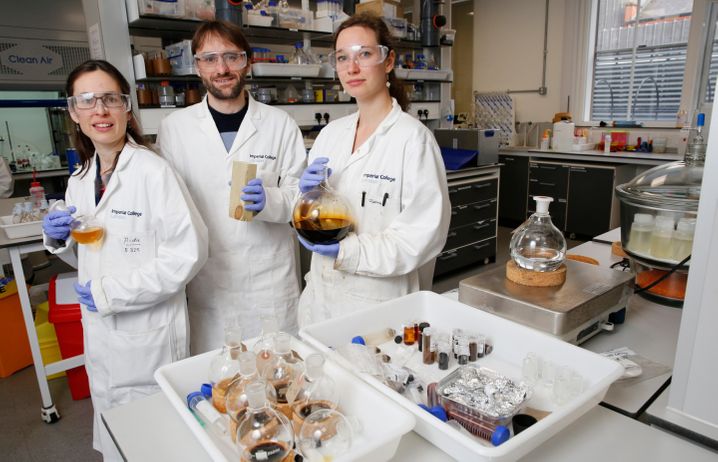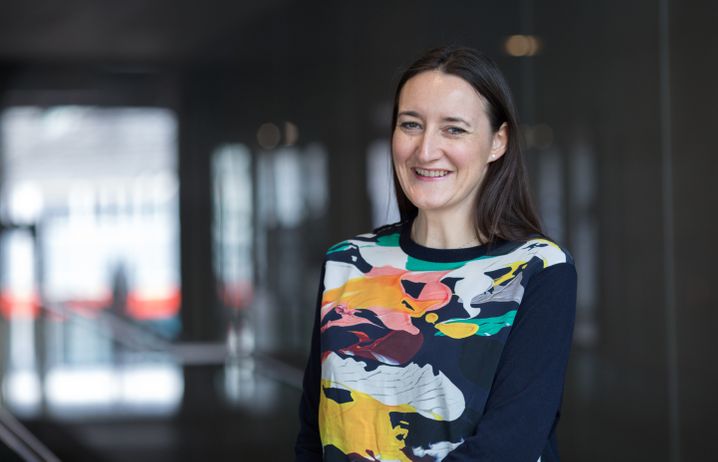3. Sustainable society
Sustainable society case studies

Biomass pilot plant
Cleantech startup Lixea is building a pilot plant to demonstrate their innovative process to turn waste biomass into plastics, fuels, materials and chemicals, using a €2.3m grant from the European Innovation Council. The company was launched as Chrysalix in 2017 to commercialise research by Dr Agi Brandt-Talbot, Dr Florence Gschwend and Professor Jason Hallett on a novel chemical process using low-cost sustainable solvents. The innovation aims to offer alternatives to the use of crude oil in a variety of applications while forming part of the circular economy.

Clean energy consultancy
London’s cleantech industry has been given a boost through Imperial Consultants’ Innovation Vouchers issued through the Better Futures Programme. Created by the Greater London Authority and Sustainable Ventures, with funding from the European Regional Development Fund, the programme provides startups with access to Imperial’s scientific expertise. To date, 17 projects have been undertaken including: advice on battery design and lifetime calculations, new wearable technologies, life cycle analysis, integrating satellite datasets and advice on energy regulation issues.

Medicines manufacturing
In the latest phase of a longstanding partnership, Imperial researchers led by Professor Claire Adjiman at the Centre for Process Systems Engineering and researchers at UCL are working with pharmaceutical company Eli Lilly and Company to uncover more efficient ways to produce hard-to-manufacture peptide drugs. Combining novel manufacturing techniques, digital tools and artificial intelligence, the researchers aim to ensure that the raw materials are converted into high yields of high purity drugs with little waste. The research is being delivered with financing from Lilly and the UK government through an £11m Prosperity Partnership.
Energy transition
Imperial’s partnership with Shell is addressing a variety of challenges in the energy sector, with a focus on working with the company to help it meet its ambition of being a net zero emissions energy business by 2050 or sooner. Across five labs and centres, scientists and engineers are working with Shell to realise new energy storage technologies, reduce methane emissions and develop solutions to decarbonise the mobility sector. They are also advancing digital imaging approaches to better predict fluid flow in a range of scenarios, understanding material behaviour to provide solutions to real-world operational challenges, and collaborating on emerging digital technologies in business.
Green tech challenge
Imperial supported the inaugural Vodafone Future Changers competition, which invited young innovators from across the globe to find solutions to environmental challenges. The 2019 winner, Abdelrahman Fawzy from Egypt, was awarded £5,000 from Vodafone and a package of training and mentoring from the College’s Techcelerate programme. Techcelerate aims to help him build a venture that adds value to industrial wastewater generated by textile production. Egypt has low rainfall rates and Mr Fawzy is developing a solar-powered water distillation system that recycles up to 85% of the waterput into it.
Water research
Imperial is collaborating with Anglian Water on research to help the UK water industry meet an ambitious pledge to achieve net zero carbon emissions by 2030, the latest focus of a partnership that began over 20 years ago. Imperial is also working with the company to identify innovative ways of reducing leakage and better understand the environmental risks associated with discharges from combined sewer overflows, among other topics, while Anglian Water is helping train students on the world-renowned MSc in Environmental Technology at the Centre for Environmental Policy.


